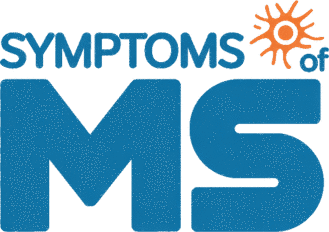Understanding Multiple Sclerosis Diagnosis

Have you ever considered how a precise diagnosis can drastically change the course of your health journey? Understanding the complexities of multiple sclerosis (MS) diagnosis is vital for anyone navigating this condition.
What You Will Learn
- The significance of accurate diagnosis in managing multiple sclerosis effectively.
- Key risk factors that may increase the likelihood of developing MS.
- Immediate steps to take after receiving an MS diagnosis to empower your health journey.
- Various treatment options available, including disease-modifying therapies.
- The importance of connecting with support groups and community resources for emotional and practical assistance.
Key Risk Factors for Multiple Sclerosis Development
Understanding these risk factors can help in assessing personal risk and facilitate earlier discussions with healthcare providers regarding MS.
Age of Diagnosis
20-40 years old
Gender Predisposition
Women are more likely than men
Family History
Increased risk with family history of MS
Geographical Location
Higher rates farther from the equator
Understanding the Complexities of Multiple Sclerosis Diagnosis
Diagnosing multiple sclerosis (MS) can often feel like piecing together a complex puzzle. Each individual’s symptoms may vary widely, and the path to an accurate diagnosis is crucial for effective management. In my years as a neurologist, I’ve seen firsthand how essential it is for patients to understand the diagnosis process. Without a clear diagnosis, individuals may struggle with uncertainty and may not receive the treatment they need to manage their symptoms effectively.
Here at Symptoms of MS, we believe that education is the key to empowerment. Understanding the intricacies of MS diagnosis not only alleviates anxiety but also helps patients advocate for their health. Let's take a closer look at why accurate diagnosis matters and how it can impact your care journey.
Why Accurate Diagnosis Matters for Multiple Sclerosis
An accurate diagnosis of MS is critical, not just for confirming the condition but for directing appropriate treatment options. The sooner we can identify MS, the earlier we can start interventions that may slow disease progression and improve quality of life. Early diagnosis can significantly influence:
- Symptom management: Timely treatment can help alleviate symptoms and prevent complications.
- Access to resources: Knowing you have MS opens doors to community support and educational materials that can help you navigate your condition.
- Personalized care plans: Understanding your unique case allows for tailored treatment strategies that consider your specific needs and lifestyle.
By prioritizing accurate diagnosis, we can work together to create a proactive approach to managing MS, ensuring that you feel supported every step of the way.
Common Questions about MS Diagnosis
If you're facing the possibility of multiple sclerosis, it’s natural to have questions. Here are some of the most common inquiries I encounter from patients:
- What symptoms should I be aware of?
- How long does the diagnostic process take?
- What tests are involved in diagnosing MS?
- Can MS be diagnosed without a visible MRI lesion?
Understanding these questions and their answers can help demystify the diagnostic process. It’s important to remember that each individual’s experience may differ, and your healthcare provider is there to guide you through it.

Key Risk Factors for Developing Multiple Sclerosis
While the exact cause of MS remains unknown, several risk factors have been identified that may increase the likelihood of developing the condition. These include:
- Age: MS is most commonly diagnosed between ages 20 and 40.
- Gender: Women are more likely to develop MS than men.
- Family history: A family history of MS can increase your risk.
- Geographical location: People living farther from the equator have higher rates of MS.
Identifying these risk factors can help in understanding your personal risk and may facilitate earlier discussions with your healthcare provider. Awareness is a crucial first step in navigating your health journey.
A Clear Step-by-Step Pathway for Diagnosing Multiple Sclerosis
A well-structured approach to diagnosis can streamline the process and reduce the emotional burden on patients. Let's delve into the steps involved in diagnosing multiple sclerosis, beginning with your initial assessment. Major advancements in diagnostic criteria, such as the updated McDonald Criteria, have significantly refined how MS is identified, making the process more accurate and efficient. These criteria are periodically revised to incorporate new scientific understanding and imaging techniques, ensuring that diagnoses are as precise as possible. You can learn more about these criteria and their impact on diagnosis from sources like ECTRIMS and the Cleveland Clinic.
Pro Tip
Did you know? Keeping a detailed symptom diary can greatly assist your healthcare provider in making an accurate diagnosis of multiple sclerosis. By tracking your symptoms, their frequency, and any triggers, you can provide valuable information that may help in tailoring your treatment plan more effectively.
Frequently Asked Questions (FAQs) about Multiple Sclerosis Diagnosis and Management
- Q: Why is an accurate MS diagnosis so important?
- A: An accurate diagnosis is crucial for effective symptom management, access to appropriate resources, and the development of personalized care plans. Early diagnosis can significantly influence disease progression and quality of life.
- Q: What are the key risk factors for developing MS?
- A: Key risk factors include being between 20 and 40 years old, being female, having a family history of MS, and living farther from the equator.
- Q: What immediate steps should I take after an MS diagnosis?
- A: After diagnosis, you should schedule follow-up appointments with your neurologist, educate yourself about MS, explore various treatment options (including disease-modifying therapies), and connect with support groups.
- Q: What types of treatment options are available for MS?
- A: Treatment options include disease-modifying therapies (DMTs) such as injectable treatments (interferons, glatiramer acetate), oral medications (dimethyl fumarate, fingolimod), and infusions for more serious cases.
- Q: Where can I find support and resources for managing MS?
- A: Support can be found through local MS chapters, online forums, patient advocacy organizations, and resources from entities like the National MS Society, which offer educational materials, financial assistance information, and access to rehabilitation services.
Transitioning from Diagnosis to Management of Multiple Sclerosis
Receiving a diagnosis of multiple sclerosis (MS) can feel overwhelming, but it is also the beginning of a crucial journey towards management and care. At Symptoms of MS, we understand how vital it is to act swiftly after diagnosis. Early intervention can significantly improve long-term outcomes, allowing you to take charge of your health with confidence.
In this section, I’ll guide you through the immediate next steps following an MS diagnosis, exploring the various treatment options available. Being proactive about your health not only empowers you but also helps in managing symptoms effectively.
Understanding the Importance of Early Diagnosis and Treatment
Early diagnosis of MS is crucial for optimizing treatment and management strategies. Recognizing MS promptly can lead to timely interventions that may slow disease progression. Here are some reasons why early treatment is essential:
- Slows Disease Progression: Early treatment options can help mitigate the progression of symptoms.
- Improves Quality of Life: Managing symptoms early on can lead to better overall well-being and daily functioning.
- Enhances Treatment Response: Starting treatment sooner may improve the effectiveness of disease-modifying therapies.
Focusing on these elements can create a solid foundation for your management plan. Engaging with your healthcare provider about the best courses of action is vital.

Immediate Next Steps After Receiving a Diagnosis of MS
Once you have received your diagnosis, it’s important to establish a clear plan moving forward. Here are some immediate steps to consider:
- Schedule Follow-Up Appointments: Connect with your neurologist to discuss treatment options and monitor your condition.
- Educate Yourself: Knowledge is power! Read up on MS, its symptoms, and management strategies.
- Explore Treatment Options: Discuss with your healthcare provider about disease-modifying therapies and other treatments.
- Connect with Support Groups: Engaging with others who share your experience can provide emotional support.
Following these steps can help you feel more in control and prepared for what's ahead. Remember, you don’t have to navigate this journey alone.
Exploring Treatment Options: Disease Modifying Therapies and More
When it comes to treating MS, there are several options to consider. Disease-modifying therapies (DMTs) play a vital role in managing the condition. Here’s a quick breakdown of the primary types of DMTs:
- Injectable Treatments: These often include options like interferons and glatiramer acetate.
- Oral Medications: Oral therapies, such as dimethyl fumarate and fingolimod, offer convenience for many patients.
- Infusions: Some treatments are administered via infusion, typically in a healthcare setting, for more serious cases of MS.
Each treatment comes with its own set of benefits and potential side effects. Working closely with your healthcare provider to find the right therapy for your individual needs is critical. Keep an open line of communication with your doctor about your experiences and how you’re feeling during treatment.
Continuing Support: Resources and Communities for Patients
As you transition into managing your MS, it’s essential to know that support is available. Various resources and communities can offer guidance and understanding throughout your journey.
Utilizing these resources can help you feel less isolated and more empowered as you navigate life with MS.
Finding Support Groups and Online Communities
Connecting with others who understand what you're going through can provide significant comfort. Here are some ways to find support:
- Local MS Chapters: Many cities have local chapters that hold meetings, events, and support groups.
- Online Forums: Websites and social media groups provide a platform for discussing challenges and sharing experiences.
- Patient Advocacy Organizations: Look for groups that focus on MS advocacy and education for further support.
Being part of a supportive community can offer both practical advice and emotional solace.
Utilizing Resources from the National MS Society and Other Organizations
The National MS Society offers a wealth of resources, from educational materials to funding for research. Additionally, various organizations provide services such as:
- Information on Financial Assistance: Resources to help you navigate healthcare costs.
- Access to Rehabilitation Services: Programs to assist in maintaining physical function and independence.
- Educational Webinars and Workshops: Opportunities to learn from experts and connect with other patients.
Leveraging these resources can make a significant difference in managing your condition. Don’t hesitate to reach out!
Patient Advocacy and Navigating the Healthcare System
Advocating for yourself within the healthcare system is crucial. Here’s how you can navigate this landscape effectively:
- Keep Detailed Medical Records: Documenting your symptoms, treatments, and any side effects can inform your healthcare decisions.
- Ask Questions: Always feel free to ask your healthcare provider about anything you don’t understand.
- Get Involved in Advocacy Efforts: Participate in local or national advocacy campaigns to raise awareness about MS.
Being your own advocate empowers you to make informed choices about your health. Remember, I’m here to help you navigate this journey with clear, supportive information.
Recap of Key Points
Here is a quick recap of the important points discussed in the article:
- Importance of Accurate Diagnosis: A timely diagnosis is essential for effective symptom management and personalized care plans.
- Common Questions: Understanding the diagnostic process and common inquiries can alleviate anxiety for patients.
- Risk Factors: Awareness of age, gender, family history, and geographical location can aid in early discussions with healthcare providers.
- Next Steps After Diagnosis: Schedule follow-ups, educate yourself, explore treatment options, and connect with support groups.
- Support Resources: Utilize resources from organizations like the National MS Society and engage with patient advocacy efforts.








